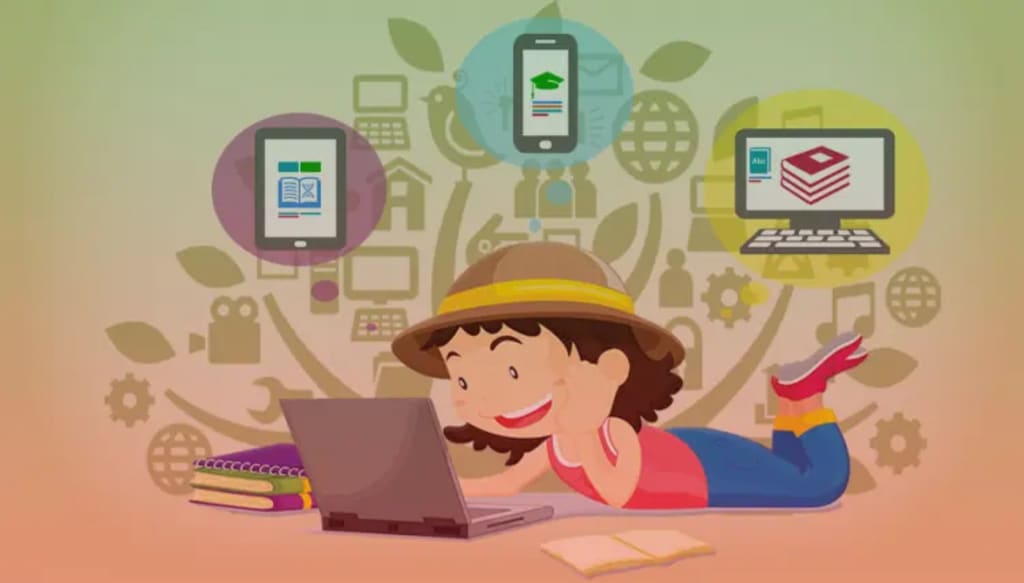
In a world where technology drives massive progress, the educational industry is no exception. From virtual classrooms to online learning, modern technologies are constantly unlocking innovative ways and revolutionizing education with custom application development solutions. Edtech apps play a major role in transforming the traditional way of education and making online learning more engaging, accessible, and personalized. In this blog, we will discuss different aspects of Edtech app development. Let’s get started.
The rise of educational apps
Edtech apps play a significant role in transforming the entire educational mobile app development industry. According to the report, the global eLearning market is projected to reach $325 billion by 2025. Indeed, as the educational sector becomes one of the emerging fields, there is a massive demand for custom Edtech app development. Educational apps are extensively used by diverse organizations and individuals to address several learning needs. For instance:
Parents use these apps to engage their kids with online learning activities
Candidates and students use apps as an assistance to prepare for examinations
Professionals use learning apps to seek advanced certifications
People who need to excel in their knowledge in a particular field
Educational institutes use these apps to transform traditional learning approaches
Key features of an Edtech applications
Educational apps are designed and developed with cutting-edge features to deliver an impressive user experience. Let’s have a look at the top-notch features of custom Edtech applications:
Admin Side:
1. User management: The user management system in the admin panel allows the admin to seamlessly manage user accounts. Different programming languages are used to add the user management feature.
2. Content management: This is a useful feature used to upload, organize & modify content in the application. CMS or content management system uses several technologies to streamline content across the app.
3. Reporting and analytics: Real-time analytics play an important role in tracking platform usage, creating insightful reports, and tracking student progress. Integrating analytics tools or features makes the reporting and analytics process easier.
4. Security features: Since educational apps are often used by teachers, students, and learners, having high-security protocols is essential for sensitive data protection. Implementation of secure coding, SSL, and security audits protects apps from cyber threats.
User side:
1. Intuitive UI: User interface plays a significant role in edtech apps. It helps to boost user engagement and interaction. The UI of educational platforms should be appealing, responsive, and interactive.
2. User Registration: With the user registration feature, users can open their accounts. This will help them track their online learning progress, and personalize their preferences. Three common ways for user registration include:
Phone verification
Social media authorization
Email authorization
3. Communication Tools: This feature helps to run virtual classes smoothly. Latest announcements, in-app messaging, and communication channels improve effective interaction with the end users.
Other popular features of educational apps include
Sign up or Log in
Assignments
Lecture scheduling
Video conferencing
Audio streaming
Push Notifications
Document sharing
Progress tracking
Integrated leaderboards
Performance tracker
Interactive graphics
Chat support
Online & offline mode
Multilingual support
Classroom forum
Payment System
AI personalization
Data Analytics
Gamification
How much does it cost to build an educational app?
The overall cost of educational app development ranges from $10,000 to $100,000. Technically, the total app development cost varies depending on a number of factors like app complexity levels, in-app features and functionalities, choice of app development platforms, technology stacks, development team size, developer’s hourly rates, geographical locations, etc. For your convenience, let’s have a look at the cost breakdown
Basic apps: The cost of a simple application with common features like smooth user interaction, text-based lessons, and quizzes ranges from $5,000 to $20,000.
Medium complex app: The cost of an educational app with custom features like interactive elements, multimedia content, progress tracking, bespoke UI, and user profiles ranges from $20,000 to $50,000.
Advanced apps: The cost of an app with highly complex features like AI/ML; algorithms, external API integration, personalized UI, real-time collaboration, and social features ranges from $50,000 to $100,000.
Final words
Educational app development has transformed the way of online learning in all aspects. This makes education faster, more convenient, and more engaging. It comes with ample opportunities for startups, SMBs, and entrepreneurs who want to take their businesses to the next level. If you would like to build a custom educational app, partner with a reliable Android or iOS application development company that will help you create intuitive applications seamlessly.





Comments
There are no comments for this story
Be the first to respond and start the conversation.